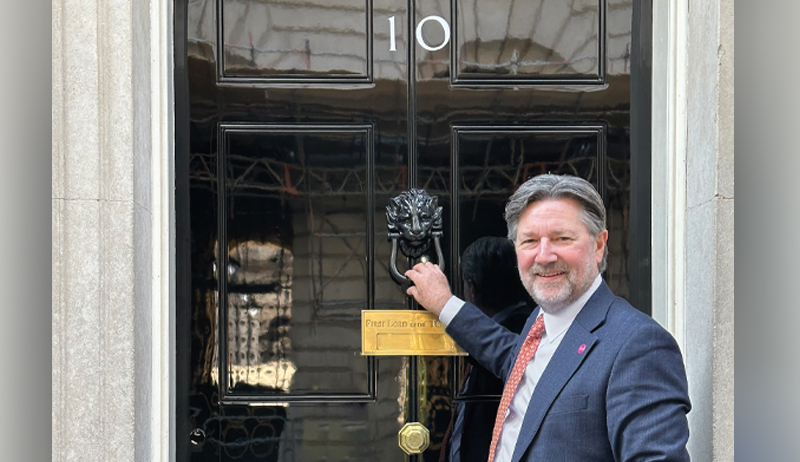The Independent Print Industries Association wants to know what you think about trading conditions, and your ideas for targeted industry support, so that it can better represent the print sector in discussion with Government. Are you prepared to make your voice heard?
In April, the IPIA grabbed the chance to get into discussion with Government on the state of the UK print industry - and on what needs to happen to help ensure its future. The association, which presented information and proposals garnered from its members and council, is now gathering representations from other bodies belonging to the Graphic and Print Media Alliance (GPMA) - which includes the BPIF and Picon - to strengthen its advocacy efforts. It also wants you to speak up.
On the agenda at that meeting at 10 Downing Street back in April, between IPIA chair Charles Rogers and special advisors to the Prime Minister Rishi Sunak, was a detailed overview of the UK as a top-six global print producer, print’s responsibility for nearly 8% of total UK manufacturing output, and the critical part it plays in the social, cultural and economic fabric of the country. Print and paper’s role in developing sustainable technology and its contribution to the advancement of the circular economy was also highlighted.
The IPIA then set out the challenges that are inhibiting the growth and competitiveness of UK print and paper, before presenting a package of structural and strategic support requests.
A case was also put forward for the print, paper and allied sectors to be recognised as an ‘industry of strategic value’ - a term that describes industries that play a fundamental role in the economic health and competitiveness of the nation.
“The opportunity to participate in this meeting presented itself at short notice, and I was honoured to represent the IPIA on behalf of print and paper at No 10 Downing Street. Meeting with special advisors, who report to the PM, was a critical and rare opportunity to push our agenda for all those involved with print and paper in the UK,” says Rogers, adding: “Both advisors expressed positivity regarding follow-up meetings and currently we are looking forward to a return visit, where we can expand on suggestions to aid UK print and paper.”
PG Paper’s Puneet Gupta, who facilitated the 10 Downing Street meeting, adds: “By bringing together stakeholders from various sectors of the industry we look to develop strategies to overcome the challenges and support growth.”
The structural support requests put forward so far include:
- Inclusion of print businesses in the Energy Intensive Industries Exemption Scheme, which provides utilities costs relief, and similar support initiatives in the future.
- Expansion of the existing capital allowances scheme on plant and machinery investment for the print industry.
- The introduction of a subsidy or tax scheme to reduce the cost of core industry manufacturing materials for print and postage.
- Implementation of post-Brexit policies that prohibit imports of paper products that are below UK environmental aspirations or standards.
- Identification of the UK print and paper sector as an ‘industry of strategic value’ to the UK economy and thus its inclusion in all Government manufacturing stimulus and support schemes in the future.
- Special classification placed on print and paper exports to Ireland to mitigate a significant loss of competitiveness with European print businesses.
The strategic support requests put forward to date include:
- Leveraging of the UK print and paper industry’s sustainability performance as part of the Government’s ambition to become a world leader in green technologies and carbon reduction.
- Engagement with print industry associations to assist with Government’s levelling up agenda and apprenticeship schemes.
- A national Government led campaign that drives awareness of the role of the print industry, and in particular the social impact and importance of its manufacturing capabilities.


